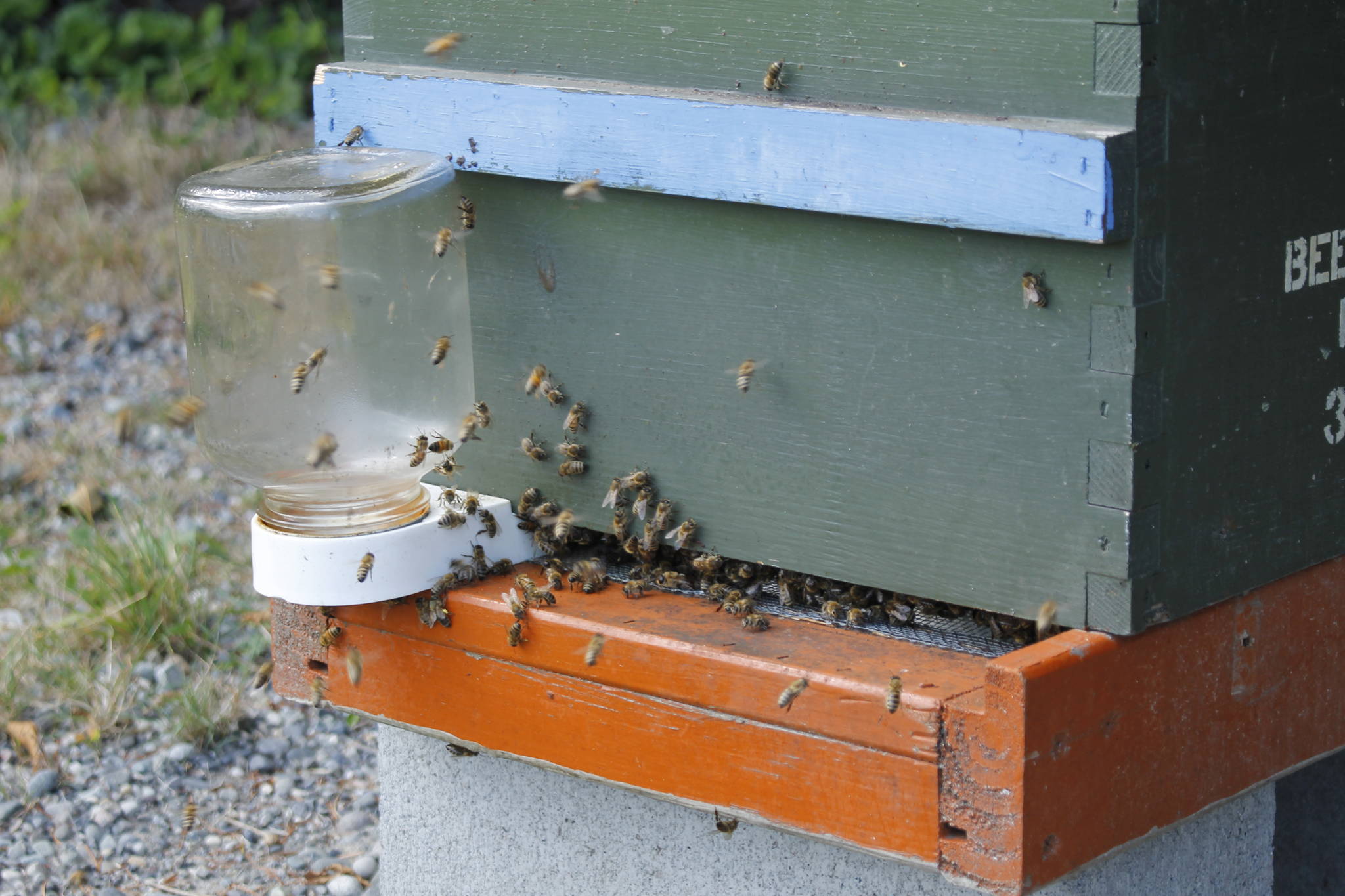Future generations of South Whidbey youngsters learning about nature will be able to see honey bees in action, thanks to a Girl Scout’s community service project.
Olivia Varga, a South Whidbey High School 2021 graduate, was looking for a project to complete so she could earn her Gold Award, the highest honor a Girl Scout can achieve.
According to the Girl Scouts website, only about 5% of Girl Scouts win this award.
But Varga was undaunted by this statistic.
Last spring, while working at Bayview Farm and Garden, she listened to the stories and questions of many customers who were facing pollination problems in their gardens.
“I started learning more about gardening and commercial agriculture and pollination in general, and I found it super, super fascinating,” she said.
Varga did research on different kinds of bees, finally settling on honey bees for her service project.
Varga chose an area near the school farm behind the South Whidbey Elementary School as a place for honey bee hives to thrive.
“I really thought this would be a cool way to bring up the next generation of kids to be more cognizant and aware of what goes into our food systems and the importance of pollination,” she said.
After pitching her idea to the school district — and after taking a detour through adulthood as she learned about things related to insurance that she needed to document for the project — Varga was able to bring the hive to the school this spring, with the help of a Whidbey beekeeper.
Langley resident Joseph Suggs, who has four hives of his own, volunteered to help install the new hive on the school’s property. Suggs’ daughters were both Girl Scouts.
“We spent a lot of time siting the location for the hive to make sure it was somewhat protected from the wind,” he said, adding that it was good to have it near the treeline but not too sheltered from the sun.
The hive is populated with bees from a swarm that Suggs caught in his backyard.
At this point, the focus is on building up the hive so the colony can survive winter. Honey will most likely be able to be collected from the structure starting next year.
“It always impresses me because you start with a small cluster from a swarm and they grow to a big, strong hive,” Suggs said.
As part of her project, Varga included some activities and curriculum material to go with the hive that teachers will be able to use in the classroom.
The hive is intended to be part of the students’ outdoor education, much like the school farm currently is.
The hive is behind a fence, so kids will be able to observe the bees in action while keeping their distance.
Through the project, Varga said she really wanted to focus on the human impact to honey bee hives in agriculture and in daily activities.
Although she is not required to maintain the hive herself, Varga said she still had the chance to don a bee suit and work with a local beekeeper at least once.
“It was really, really cool,” she said of the up-close-and-personal experience.
Varga will receive her Gold Award next spring during a ceremony.
Varga said she doesn’t believe this will be the end of her journey with Girl Scouts. She just became a lifetime member of the organization, and she thinks she might one day be a troop leader or a volunteer in some way.
“It was definitely a good learning experience and definitely challenged me,” she said of her Gold Award project.
Varga will be attending Lewis and Clark College in Portland to study environmental science.



